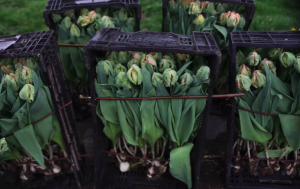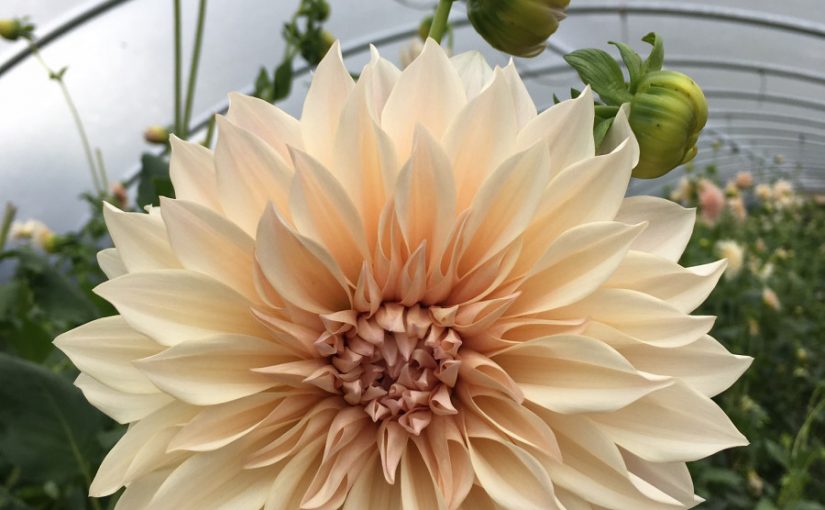Perfectly enough, the first week we really got to work on propagation at Thistlehook was the same week Erin talked about propagation techniques and best practices for the Floret Online Workshop. There were sections about starting from seed in a greenhouse and direct seeding, as well as propagation from cuttings, bulbs, corms, and tubers. There was also a section on soil fertility, including how to perform a soil test, how to prepare your soil, and how to create/utilize compost tea.
Erin went into depth on specific flowers that are a bit more tricky to propagate, including softwood cuttings, smaller seeds (i.e. Iceland Poppies, foxglove, snapdragons), dahlias (cuttings, digging/storing, dividing), pre-sprouting in cold climates (i.e ranunculus, anemones), bulbs (i.e. tulips, daffodils, etc.), and direct seeding (i.e. millet, sunflowers, cress, larkspur, etc.)
As a die-hard tulip lover, I found the 30 minute video devoted solely to bulbs to be fascinating. I learned a ton of tips and tricks for growing, harvesting, and storing flowers grown from bulbs (but especially tulips). For example, at Floret when they harvest tulips, they take the entire plant, bulb and all. This keeps the flower attached to its food source, allowing them to be kept in a cool for up to one month! They don’t need any water either, just the bulb to stay attached. I also liked this idea because it gets the bulb out of the ground immediately after harvest so they don’t sit for weeks and become rotten.

Source: Floret Online Workshop Module 3
Additionally, there was a video on how to build a simple grow light if you don’t have a greenhouse on-site (which is exactly what we did at Thistlehook this week!) See Thistlehook Internship (Week 3) for photos.
I also really appreciated them going over soil fertility and compost tea. It was really cool to see a compost tea brewer in action and get step-by-step instructions for how to brew compost tea. For some reason, I was always intimidated by brewing compost tea because it seemed very complex, but this video made it seem really easy as long as you have all the right equipment and materials. Apparently, they try to compost tea all their crops at least once a week, with certain crops like dahlias and sweet peas getting even more applications. I definitely want to try it in the future.
RESOURCES:
Floret Online Workshop, Module 3: Getting a Good Start
